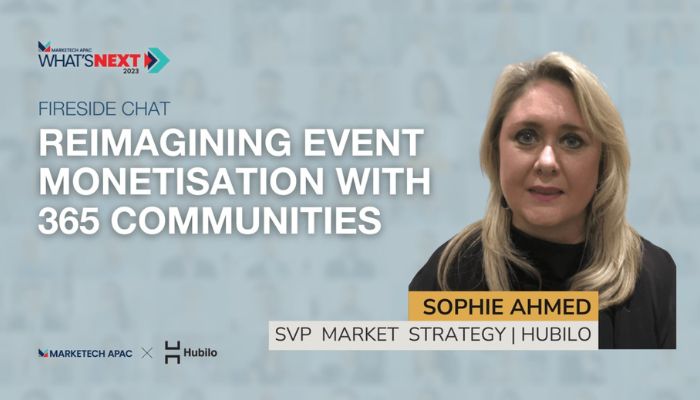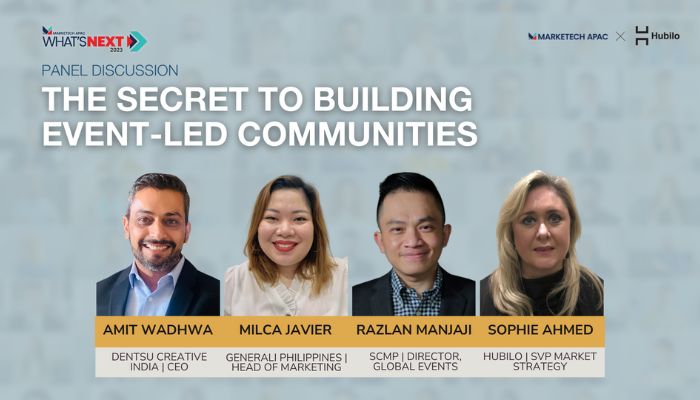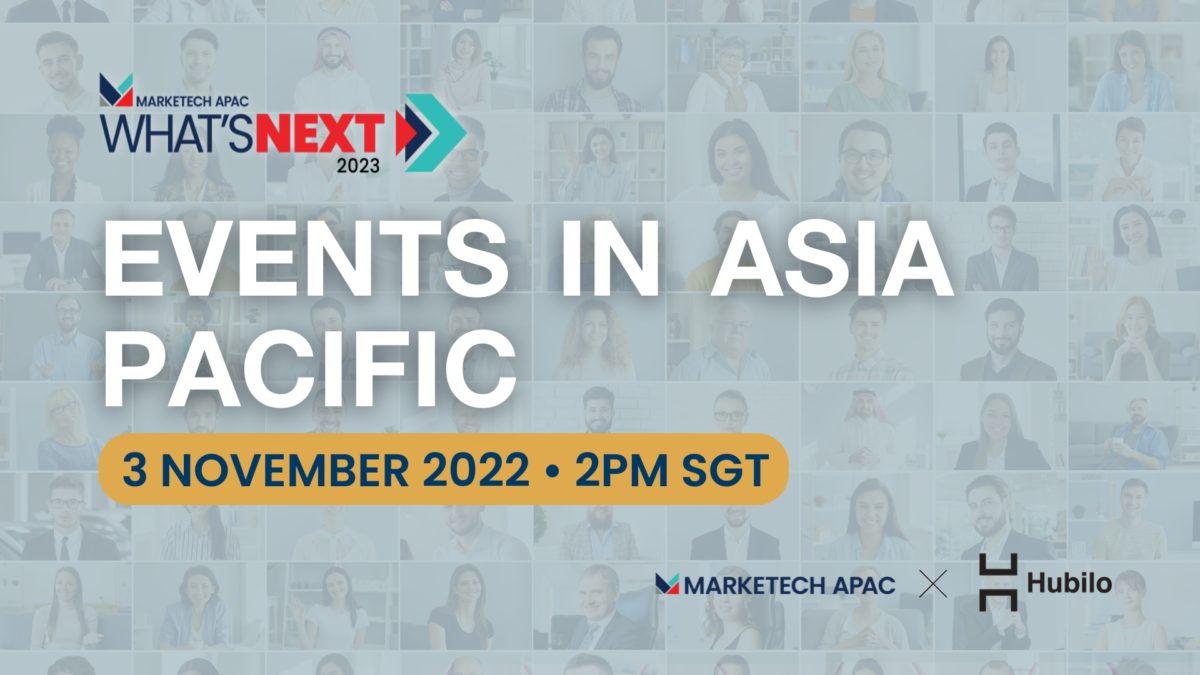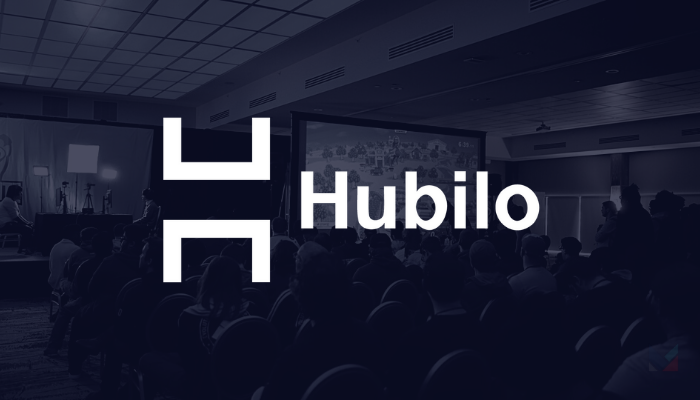Singapore – In the recently concluded webinar, What’s NEXT 2023: Events in Asia Pacific, marketing leaders from different industries came together in a panel discussion to touch base on event marketing as we move forward from pandemic-induced social restrictions. This was joined by Amit Wadhwa, CEO of Dentsu Creative India; Milca Javier, head of marketing of Generali Philippines; and Razlan Manjaji, director of global events at South China Morning Post.
Moderated by Sophie Ahmed, the SVP for market strategy at Hubilo, the panel discussion saw the industry leaders agreeing that while the innovation of digital made it possible for brands to continually serve events in the virtual form amidst the pandemic, nothing can replace the engagement brought by in-person events.
“Events were means of physically interacting with the target audience, actually making the brand [be experienced] As senior vice president of marketing, physically. And I think Covid has taught us that nothing can replace that,” said Wadhwa.
“What’s interesting in the times that we’re living in, events…of course it is about physically interacting with the brand, physically interacting with the philosophy of the brand, [and] physically living the brand, but I think, more importantly, the events actually lived much beyond the physical event, the event now can actually [move] to digital,” he added.
When virtual became the lifeline for events, everyone thought it would now be an either/or situation between virtual and physical. But the sophistication brought by the former just proved that in-person events have just gotten better through it.
“We all keep talking about how digital is booming, and how that is the new medium to be, but it’s not just creating content for digital,” said Wadhwa. “You can actually do something on-ground and then amplify it digitally.”
What events are making possible for brands
Despite the momentum of brand events held back for a period, the ‘show’ must go on for them as it serves many purposes on their engagement, brand message, and consumer retention.
For Manjaji at SCMP, it is through events that they are able to bring together their most loyal readers and subscribers.
“[Events are] a platform for us to engage our most loyal readers and most active readers…for you to be participating in an in-person event, those people are really invested in the story and journalism that you tell,” he said.
When consumers, or readers in SCMP’s case, are brought together in one shared space, it follows that the brand is able to engage and get to know its audiences better.
“If you want to think about First-party data, for example; through events, you’ll get to know readers much, much more. Which event [did] they go [to]…who did they talk to – those data [are] actually gold mine for us, and we start to realise the power of events, virtual and in-person, to collect these data. So for us, we use events for that [purpose],” said Manajaji.
In terms of events becoming a way to acquire relevant consumer data, Wadhwa agrees.
“We are getting more and more richer [with] our insights with each event because of the data we’re getting, because of the understanding that we’re getting, which wasn’t the case earlier,” said Wadhwa.
Meanwhile, for Javier that helms the marketing of insurance brand Generali, what events enable is the communication of the brand’s story and it becoming a platform to help consumers understand the brand purpose beyond the surface level.
“Insurance, per se, is seen as very serious or very stiff, but events enable us, [provide] us an opportunity to tell our story, or to tell our purpose,” said Javier.
During the pandemic, that ‘story’ changed for Generali Philippines – moving from the strong focus on the value proposition of ‘prevention’ to now strengthening the communication on ‘protection’, and Javier shared that events are what made it possible for them to transcend their initial branding.
“Through our events, we are able to transcend that purpose, to transcend that story, and with that, this creates opportunities for us to create the leads,” said Javier.
How to create events that stand out
Now that we’re seeing in-person events getting back on its feet, the more important question is, how can brands make their events stand out and resonate well with the audience?
For Manjaji, the foundation is important and that means continuing to treat content as king.
“[Connecting] the right dots is still fundamental; if you fail to do that, your event will be crap, [doesn’t] matter if you did it in a five-star hotel,” he said.
Wadhwa, meanwhile, said that most of all, the event must sit right on what the essence of the brand is.
Citing an example, he shared, “If I think music is entertaining, but music is not something that’s a pillar of my brand or is not connecting to my audience, I don’t just pick up music because it’s just getting popular.”
“I think it needs to fit the brand philosophy; it might sound fundamental, but [a lot of] times, brands lose track of it. I think we need to bring that back,” he added.
In terms of dealing with specific challenges in event marketing such as a limited budget, Javier also shared her insights.
For her, it’s all about prioritisation.
“You know what is far more important [to] you when you create [a certain] event,” she said.
Using ‘weddings’ as a microcosm for the larger event marketing organisation, she said you would need to think about which comes more important than others, whether that’s having grade A photography or whatnot. She shared that for Generali Philippines for example, they focus on the content they aim to give to the audience, which would mean the lion’s share of the budget goes to acquiring credible speakers.
Lastly, on the importance of curating attention-snaring and impactful events, Wadhwa shares that the event simply has to ‘feel real’ for the intended audience – events becoming a two-way communication.
“[You] can absolutely make it exciting, [if] it’s through a celebrity, or through [a] performance…but [unless] I see myself in it, and I see myself completely engrossed in it, and I start living the brand, it almost becomes a two-way communication,” he said.
“And the moment it becomes a two-way communication, I think we’ve hit the bull’s eye,” Wahwa added.
The webinar, What’s NEXT 2023: Events in Asia Pacific, also conducted a fireside chat with Ahmed, who discussed about the 365 community strategy in events. The conversation talked about how the strategy can be monetised and used for further personalisation of brands.
Register HERE to get your on-demand access.








